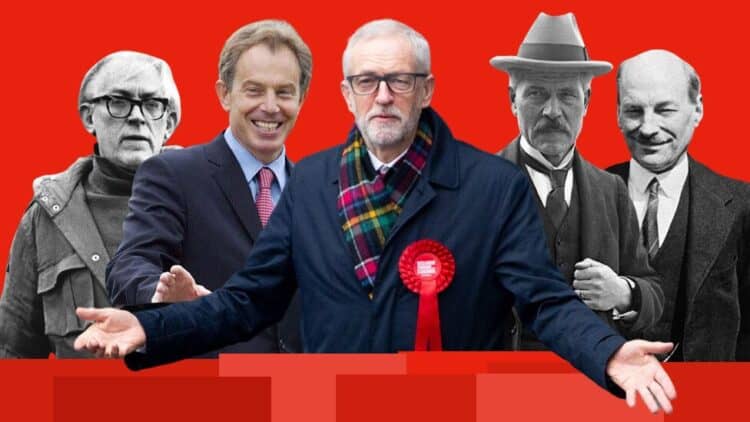The Labour Party is one of the oldest and most influential political parties in the United Kingdom. Founded in 1900, the party has a long and storied history, marked by periods of success and struggle. In this article, we’ll take a look at the history of the Labour Party and which leader received the most votes in elections.
The Labour Party was founded by trade unionists and socialist activists who were seeking political representation for the working class. Its founding principles included the nationalisation of key industries, the establishment of a welfare state, and the protection of workers’ rights. The party grew quickly in the early years of the 20th century, and in 1924 it formed its first government under the leadership of Ramsay MacDonald.
MacDonald’s government was short-lived, however, and the party spent much of the next two decades in opposition. In 1945, Labour won a landslide victory under the leadership of Clement Attlee, who served as Prime Minister until 1951. Attlee’s government is perhaps best known for its creation of the National Health Service and its implementation of key elements of the welfare state.
Labour was out of power again from 1951 to 1964, but returned to government under the leadership of Harold Wilson. Wilson was a charismatic figure who presided over a period of significant social and economic change, including the liberalisation of laws around homosexuality and abortion, and the decriminalisation of cannabis. He won two general elections in 1964 and 1966, but was forced to resign in 1976 following a period of economic turmoil.
In the years that followed, Labour was led by a series of figures who were unable to bring the party back to power. Tony Blair, however, broke this trend in 1997, when he led Labour to a landslide victory over the Conservative Party. Blair’s government is perhaps best known for its implementation of the Good Friday Agreement, which brought an end to decades of conflict in Northern Ireland.
Blair was succeeded as Labour leader by Gordon Brown, who served as Prime Minister from 2007 to 2010. Brown’s government was marked by its response to the global financial crisis, which included the nationalisation of some banks and the introduction of a fiscal stimulus package.
In terms of which Labour leader received the most votes in elections, that title belongs to Tony Blair. In the 1997 general election, Labour won 43.2% of the popular vote, which was the largest share of the vote received by any political party since 1970. Blair also led Labour to victory in the 2001 and 2005 general elections, winning a total of three consecutive terms in office.
In 2017, Jeremy Corbyn, the then-leader of the UK’s Labour Party, came within just a few thousand votes of becoming the country’s Prime Minister. Despite predictions of a Conservative Party landslide, Corbyn’s energetic and passionate campaign managed to galvanize a previously disengaged electorate, and brought the Labour Party closer to government than it had been in years.
To put Corbyn’s performance into context, it’s worth comparing his vote share to those of previous Labour leaders. In the 2017 general election, Labour won 40% of the popular vote, up from just 30% in the 2015 election. This was the largest increase in the party’s vote share since the 1945 election, which was won by Clement Attlee.
In comparison, Ed Miliband, the leader of the Labour Party in the 2015 general election, won just 30% of the popular vote. This was a significant drop from the 36% won by the party in the previous election, and was seen as a major disappointment for Labour.
In conclusion, the Labour Party has a long and varied history, marked by periods of success and struggle. From the creation of the welfare state to the Good Friday Agreement, Labour has played a significant role in shaping modern British society. Tony Blair, who led the party to three consecutive election victories, remains the most successful Labour leader in terms of votes received in elections.
You may also like: Jeremy Corbyn was a few thousand votes away from becoming Prime Minister





